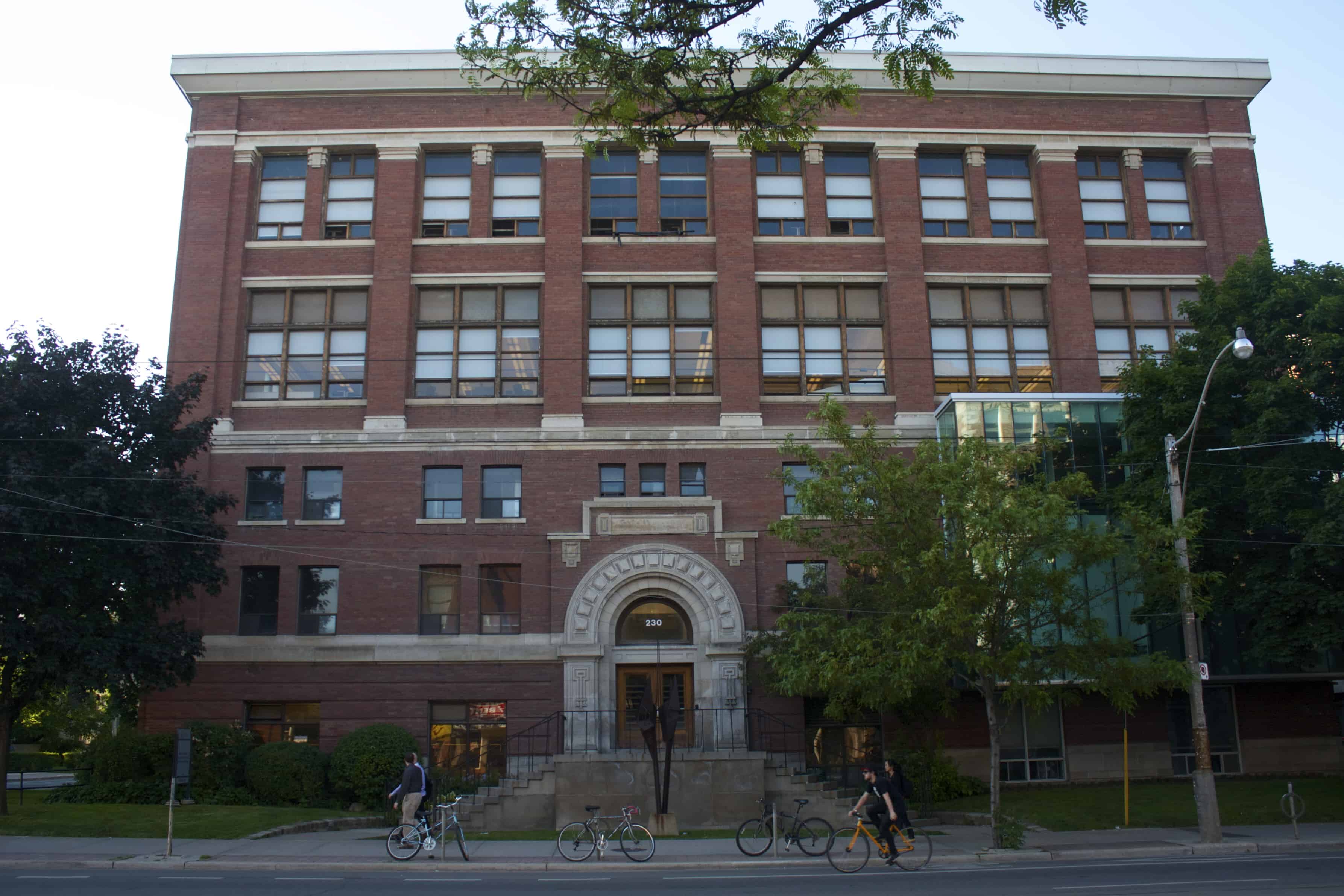The Executive Committee of the University of Toronto’s Governing Council has postponed the approval of the Student Commons, pending the resolution of the ongoing fee diversion conflict.
The Student Commons is a student-run building that UTSU has lobbied to have approved for decades. It is intended as a hub for student life on campus, including space for clubs, cheap food options and free meeting space for students, all “dedicated to enriching their work on campus” said UTSU president Munib Sajjad.
First proposed in the 1960s, and funded by a levy approved in a 2007 referendum, the project has experienced a series of delays due to planning and budget problems. Earlier this year 230 College St., the former home of the Faculty of Architecture, was announced as the location for the Student Commons. At the time, UTSU executive were ecstatic, claiming that doors could open as early as 2015. “After seven years the students of the University of Toronto will be receiving a student commons… Congratulations to everyone for making this dream a reality” reads a statement still posted on UTSU’s website.
“The Student Commons project is of vital importance to students, and hence to the university,” said provost Cheryl Misak. “Both the administration and the UTSU are optimistic that the process currently being set up will resolve in a timely fashion the disputes that make it impossible to bring the Student Commons motions forward to Governing Council this academic year.”
The ongoing fee diversion conflict involves referenda conducted by some college and faculty societies, considered illegitimate by the UTSU, which approved the diversion of fees from UTSU in protest against what the societies allege are undemocratic and unrepresentative practices. Efforts to resolve the conflict have proved inconclusive. At the June 27 Governing Council meeting, the Executive Committee expressed concern that the conflict may impact the status of UTSU as a single representative body for all full-time U of T undergraduates. This creates problems for the approval of the Student Commons, because the management agreement for the project rests on the UTSU being such a representative.
The committee did not specify when the project would be put forth for approval, stating that doing so may put unhelpful pressure on the conflict, rather than helping to facilitate resolution. Misak said that the administration is working on putting together a student societies task force composed of experts in democratic theory and practice. The task force is intended to facilitate a constitutional conference or roundtable in order to mediate the conflict between the UTSU, the Engineering Society (EngSoc), Trinity College Meeting (TCM) and Victoria University Students’ Administrative Council (VUSAC).
This is the second attempt by the administration to mediate a resolution to the conflict. Earlier in June, Misak appointed law professor Brian Langille for a one-day seven-hour marathon meeting session. No resolution or formal change in bargaining position came about as a result of that meeting.
Ben Crase, co-head of Trinity College praised the decision to delay the student commons saying it shows the provost’s commitment to resolving the issues in a responsible fashion. “The UTSU’s hopes of silencing the democratically expressed will of students will not be ignored,” he said.
Going forward, Crase hopes to bring about a transition that will allow student societies who wish to, to leave UTSU. “It is up to us to work with the provost to establish the necessary framework that allows us to interact with the university separate from the UTSU” he said.
Other concerns, about the composition of the Student Commons itself, have effectively been put on hold by this most recent development. At the May 28 University Affairs Board meeting, student governor Aidan Fishman questioned Sajjad as to why the management committee for the building was to be appointed, rather than elected.
At the time, Sajjad replied that the representatives of the UTSU, levy groups and campus groups were all elected before being appointed to the management committee. The members in question were to be elected to their respective group positions, and subsequently appointed to the management committee. In light of recent events Sajjad has backtracked, saying that the appointment process for the management committee has not yet been decided upon. “The UTSU must first consult with its membership before such particulars are finalized,” said Sajjad.
UTSU director Ben Coleman, who ran on a platform seeking pragmatic solutions between the union and opposition students, agreed with Sajjad, saying that the existing agreement did not make clear whether the management committee would be elected or not.“I think the best thing would be to make a UTSU bylaw that lays out whether that means an election or not,” he said.
Coleman also addressed the issue of transparency in the planning of the Student Commons, saying it needs to be easier for students to get information about the project. In terms of the management team, he wants to make the process “completely transparent so there’s nothing shady going on, or even the appearance of it … [w]hen it comes to the management team”.


